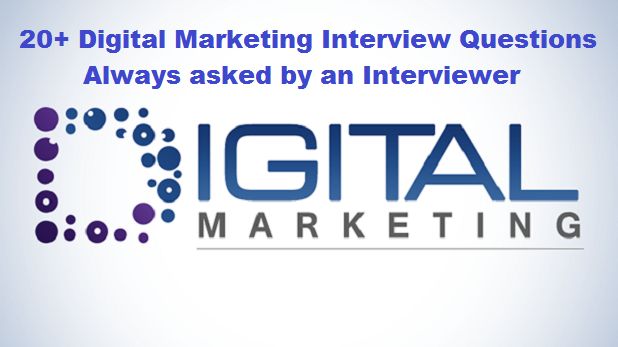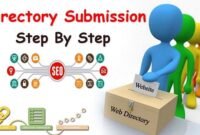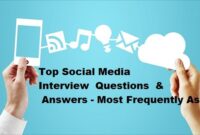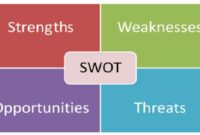
20+ Digital Marketing Interview Questions & Answers – Always asked by an Interviewer
We are providing a list of most asked Digital Marketing interview questions and answers.Freshers and experienced candidates can get a reference from these questions. Digital marketing is used for interactive marketing or promoting the product and services using digital technologies
1. What is digital marketing?
Digital marketing is an umbrella term for the targeted, measurable, and interactive marketing of products or services using digital technologies to reach and convert leads into customers.The key objective is to promote brands, build preference and increase sales through various digital marketing techniques.
Digital marketing is used for interactive marketing or promoting the product and services using digital technologies. Digital marketing is a technique to use the digital channels to promote the services to consumers and businessman.
2. Name some digital marketing channels?
There are some multiple online marketing channels:
- Affiliated Marketing
- Display Marketing
- Email Marketing
- Search Marketing
- Social Marketing
- Social Media
- Social Networking
- Online PR
- Video Advertising
3. Where should you use your keywords to optimize your site ranking?
It is very important to place your keywords in an appropriate area for better page ranking.
Keyword in Website URL
- Keyword in Website Title
- Keyword in Meta tag
- Keyword in Web page content
- Keyword density in body text
- Keywords in Headlines
4. Which are the most useful online marketing tools?
- Google Analytics
- Digital point keyword tracker
- Crazy egg heat maps
- Keyword discovery
- StumbleUpon
- XML Sitemap Generator
5. What is the difference between direct marketing and branding?
In a direct marketing campaign, the advertiser is interested to target the audience who are most relevant to the business. The major metric to consider in this type is conversion rate, which explains about ROI. Most common campaign types are Search Network Only, Shopping Campaigns, Dynamic Search Ads etc.
In Branding campaign, an advertiser needs an exposure of his brand on major sites and applications. The most popular methods are Display Ads, Remarketing, Youtube Ads and custom ads target.
6. What is Google Adwords remarketing?
AdWords remarketing is a targeted marketing strategy which allows marketers to reach the people who previously visited their website but did not take any action or did not experience conversion. It is another way to match the right people with right Ad.
According to Google ” Remarketing is a tool that can drive ROI for all types of advertisers, regardless of the focus of your campaigns (brand-oriented, performance-driven, etc.) or your ad formats…you can then remarket to those users who reach your site by showing them tailored ads on sites throughout the Google Display Network.”
E.g. if someone visits your website, Google puts a tracking code in their browser. When that same person visits any other website, Google display network makes your Ad appear to him on the website he is currently on. You yourself might have noticed this.
7. How can you categorize the digital marketing?
The digital marketing/communication is categorized into two segments
Inbound Marketing: This technique takes the help of social media, digital content in e-books, webinars or e-newsletter to increase the number of clicks on links and learn more about a company and its services.
Outbound Marketing: This segment includes placing ads, cold-calls, e-mails or reaches out potential customers through digital mediums
8. Explain what is SEO?
Search Engine Optimization widely known as SEO is the process of improving the structure, content and organization of your site so that the Search engines can index them correctly. It also involves doing promotional activities to boost your search engine rank.
9. Explain what is a keyword in digital marketing? How important is it from the point of SEO?
“Keyword” in digital marketing is the word that a user’s or person enters into a search engine to find specific information.
From SEO point of view, for better page ranking keywords are very crucial. How and where you have used the keywords will reflect your site ranking.
10. Explain what is PPC or Pay Per Click advertising?
Pay Per Click is also known as Cost Per Click is a technique used to direct traffic to websites. In this technique, advertisers pay the publisher ( website owner or a host of the website) when the ad is clicked. In other words, it is the amount spent to get an advertisement clicked.
More Read: 70+ SEO Interview Questions & Answers – Always asked by an Interviewer
11. Mention what are the primary models for determining Pay-Per-Click?
The primary models for determining Pay-Per-Click are
Flat rate PPC: In this type of model, both publisher and advertiser agree to a fixed amount that will be paid for each click. In most time, the publisher has a rate card for PPC plan based on different areas of their website or network. The amount varies as per the content that generally attracts more or fewer people.
Bid based PPC: In this type of model, the advertiser competes with other advertisers in a private auction hosted by a publisher. The advertiser will inform publisher for the maximum amount of bid he is willing to pay.
12. Explain what is Google Adwords?
Google Adwords is the single most popular PPC advertising system in the world. It works for Pay per click model.
The AdWords platform enables the business to create ads that appear on Google search engine and their other properties.
13. Mention what is an effective PPC keyword should be like?
An effective PPC keyword should be
Relevant: List out the targeted keywords
Exhaustive: Apart from most popular keywords it should include the “long tail of search”
Expansive: PPC is iterative, therefore the keyword list should be constantly growing and adapting
14. Mention what are the key elements to optimize the conversion rates per PPC?
The conversion rate is nothing but to bring more visitors to your site. To increase the conversion rates you have to focus on following things
Write compelling content on your site that is relevant to the keyword or search query
Maintain a high degree of relevance between your ads and corresponding landing pages
The webpage should easy registering process, signing up for a newsletter or making a purchase
Check design of your landing page which should have the right combination of color, layout and GUI to attract more customers
15. What should be the approach for effective Pay Per Click campaigns?
For effective Pay Per Click campaign, you need to do following things
Add more PPC keywords: By adding more keywords that are relevant to your business, you can expand the reach of your pay per click
Split Ad groups: By splitting up your ad groups into smaller and more relevant ad groups, you can improve click-through-rate (CTR)
Review costly PPC keywords: Review expensive and underperforming keywords
Refine landing page: To align with individual search queries modify the content and call-to-action of your landing page
Add negative keywords: To improve campaign relevancy and reduce wasted spend, add non-converting terms /negative keywords. ( When search with that keyword, it will not show your website/content)
16. Explain what is on-page and off page optimization?
Off-page optimization: It is the process of boosting your search engine ranking by getting external links pointing back to it
On page optimization: On page optimization directly deals with the content and structure of the website.
17. What should one do to avoid the penalty?
- Do not link to any other site with a bad page rank
- Avoid Poison words, for example, word “link”, when you hypertext this text to give the
- link to your site it becomes poison words
- Avoid stealing text or images from other domains
- Avoid re-directing users to another page through refresh meta-tags – don’t immediately
- send user or visitors to another page even before he or she clicked on the web page link
18. Mention what are the characteristics of “bad links”?
The characteristics of “bad links” are
- Links from sites that are unrelated to your sites
- Links from low Page Rank and Low traffic
- Links from link exchanges
- Links from those sites that are not in Google index
- Paid links
- Link from the same anchor texts coming from multiple sites
- Spammy links from blogs or articles.
19. Why is online marketing preferred over offline marketing?
Now a day, it is an era of digital marketing. The online cost of marketing is SEO, Hosting, and Web Development. The number of prospects is extraordinary. One can reach many individuals online and you can set your target as worldwide. Whereas the number of people who prefer reading newspapers, watching television, etc. Therefore, the target is within a specific area.
- The online tools for marketing are SEO, Hosting, and Web Development.
- The number of leads generated is extraordinary compared to the very expensive offline marketing initiatives.
- One can reach a huge and diverse audience online and can even set a worldwide target.
- It’s not only possible but also super-easy to make corrections in live campaigns in Digital Marketing in real-time. Optimization-on-the-go is finally a reality, thanks to Digital Marketing.
- There are essentially no geographical boundaries when it comes to using online marketing platforms.
- Digital Marketing feeds and thrives on consumer behavior analytics. Never before brands had so much meaningful and actionable data available to them for drawing real insights to base their marketing budget on.
- Everything is measurable and track-able in Digital Marketing. Marketers are able to measure and improve upon Return-on-Investment.
The customer’s reachability of online marketing is more than offline marketing.
20. Follow industry leaders and their blogs
Keep yourself updated with the latest blog posts. Some of the useful blogs and resources you should know are:
- HubSpot
- Moz
- Social Media Examiner
- Web Marketing Academy
- Search Engine Land
- Neil Patel
- ShoutMeLoud




